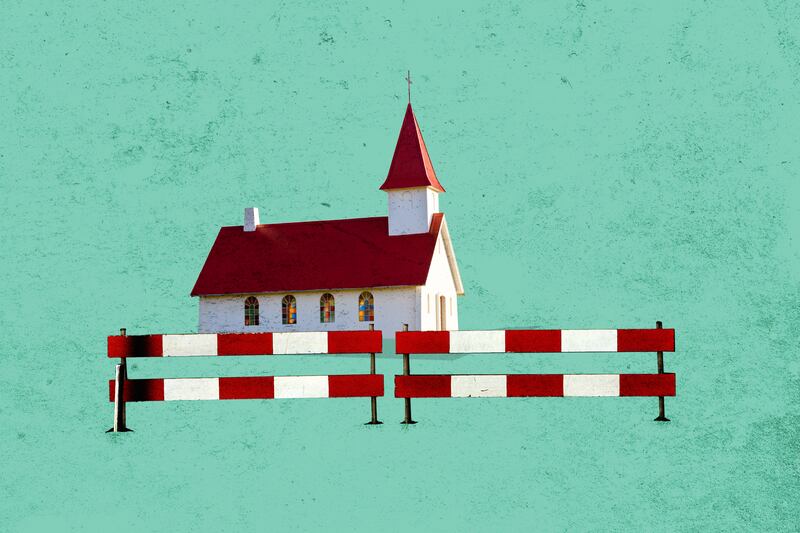In the early days of the COVID-19 pandemic, many states tightly restricted religious activities, urging — and, in some cases, forcing — faith groups to move their worship services online.
At the time, pastors who pushed back against these policies were often treated like troublemakers. But new research shows many Americans now share at least some of their concerns.
Overall, more than half of U.S. adults (52%) say that worship services at churches and other houses of worship should be considered “essential” during a pandemic. An even higher share — 62% — say the same about funeral gatherings.
Support is much lower for the secular activities referenced in the survey, which was released last month by the Becket Fund for Religious Liberty. Fewer than 4 in 10 Americans say graduation ceremonies (38%), social justice protests (33%) or sporting events (25%) should be considered essential, researchers found.
Becket’s look at how people rate the importance of various activities did not include many of the tasks that state officials generally tried to protect. For example, respondents weren’t asked if grocery shopping should be treated as essential or whether crowds could gather at polling places on election day.
However, researchers did ask about whether houses of worship or businesses should be given higher priority to stay open. They found that 27% of U.S. adults side with churches and just under half (49%) want the two types of institutions to be prioritized the same.
In some states, policymakers will have no choice but to treat houses of worship as essential during future pandemics due to recently passed laws. For example, in Texas, it’s now unconstitutional for government officials to ban or limit in-person religious services during a public health crisis.
Altogether, more than 20 state legislatures have debated bills this year regarding church closures during the pandemic, as the Deseret News previously reported.
As that article noted, some community leaders, including some pastors, are critical of these efforts. If public health experts conclude that in-person worship services are too risky, then they need to be able to act on those findings, the bills’ detractors said.
“The virus doesn’t pay attention to whether or not an event is religious. It doesn’t look at the door of a church and think, ‘I’m going to keep moving.’ I don’t think the rules should pay attention to that either,” said the Rev. Brian Kaylor to the Deseret News earlier this year.
But many Americans do support the notion that at least some religious activities deserve special consideration, as Becket’s research shows. The survey found that majorities of Republicans, Democrats and independents say funeral services at houses of worship should be considered essential.
In light of this finding and others, policymakers may want to think twice before mandating church closures during a future pandemic. The new research reveals that most people would prefer something different than an outright ban on in-person worship.


 alt=Kelsey Dallas
alt=Kelsey Dallas